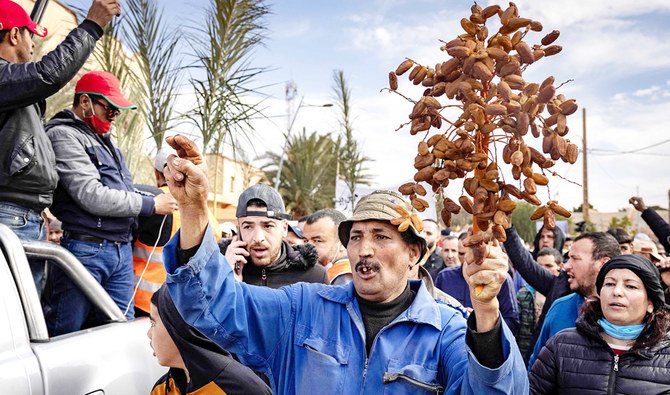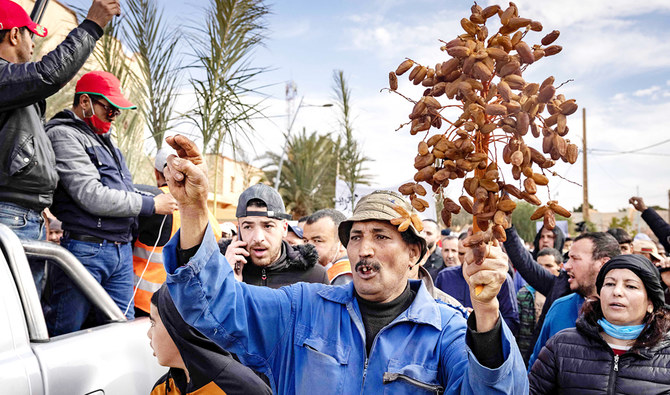The oasis, a three-hour drive to the nearest towns of Oujda and Errachidia, struggles to attract tourists
FIGUIG: Moroccan farmers in an isolated oasis on the Algerian border are bearing the brunt of regional tensions after Algiers expelled them from date groves they have worked for generations.
The border between the arch-rivals has been closed since 1994, but Algeria had allowed some residents of the Moroccan frontier town of Figuig to cross into the date groves of Al-Arja, known to Algerians as the Laaroda oasis.
In recent days, Algeria has withdrawn that right, deploying soldiers to enforce the move.
“Everybody feels wronged,” said Mohamed Jabbari, an unemployed 36-year-old who joined a protest in Figuig against the move.
“Agriculture is the only resource we have. There’s no work here, no factories.”
On Thursday, some 4,000 people — around half of Figuig’s population — attended an angry demonstration against Algeria’s decision.
Morocco’s regional authorities organized a meeting to “examine possible solutions to mitigate the impact” of a decision they said was “temporary.”
The Figuig oasis, sitting on a caravan route on the edge of the Atlas Mountains and the Sahara desert, was settled in ancient times.
Trade began to decline after the border was drawn in 1845, and diplomatic disputes between Algiers and Rabat soon turned Figuig into a dead end.
Before the border was drawn, the tight-knit Berber community had moved freely in the area.
Now, to reach relatives just a short distance over the sealed border, residents say they have to first take a plane to Algiers.
Algeria has justified the latest move by claiming farmers have failed to comply with regulations and that drug-trafficking gangs were operating in the area.
Figuig residents have strongly rejected those allegations.
“The expulsions are a political decision,” said Mohamed El Jilali, head of a local association.



